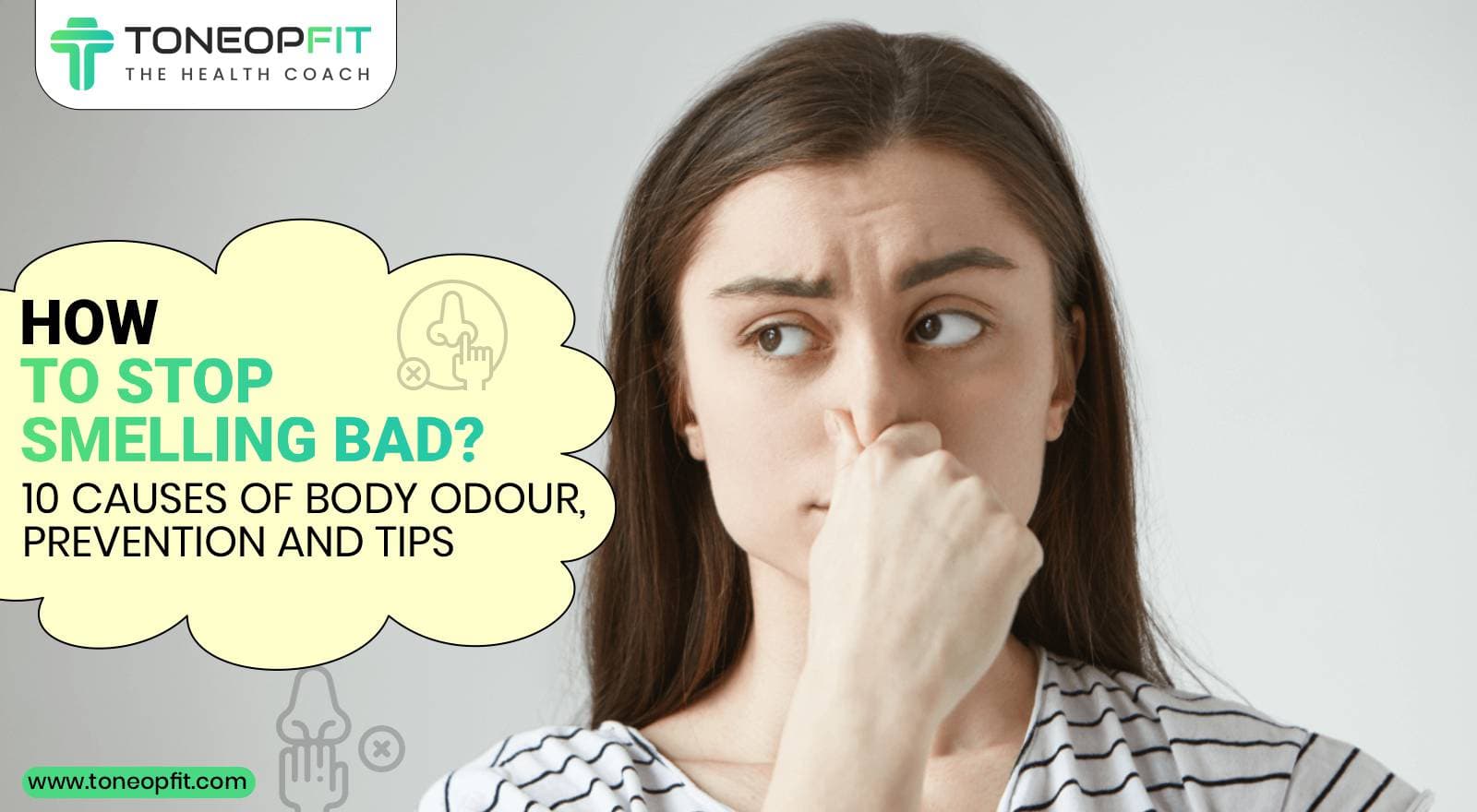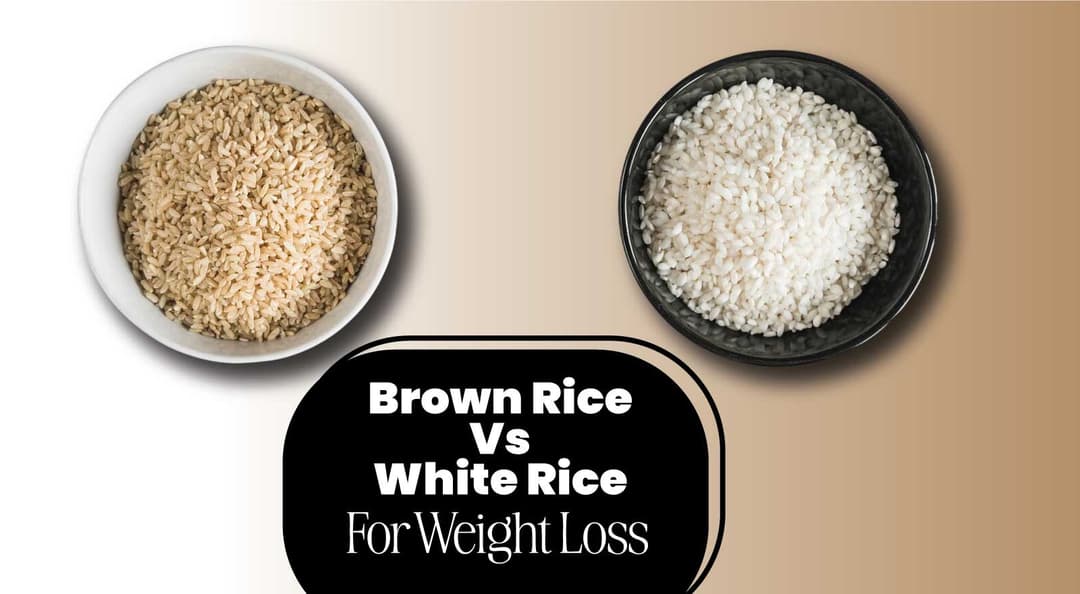Alright, let's be real—no one wants to be the one with the bad vibes... and we mean literal bad smells! We’ve all been there, sitting next to someone, wondering, “Wait, is that me?” But don’t sweat it (pun intended!), ‘cause body odour is totally fixable, and we are here to spill the tea on how to stop smelling bad for good.
First things first, let’s break down 10 causes of body odour—and no, it’s not just sweat doing the dirty work. Body odour (BO) is caused by the interaction between bacteria and sweat. It can also be affected by hormones, medications, infections, other diseases, and food. Even with good hygiene, a person can have a strong body odour. Body odour can occur anywhere on the body and can affect anyone, regardless of age. But chill, we got this!
Can body odour be cured? Well, stay tuned ‘cause the answer’s a yes, and the fix is easier than you think. In this blog, we will examine some causes and natural ways to eliminate unpleasant body odours. So, let’s get started!
Table Of Contents
- 10 Surprising Causes of Body Odour: The Unexpected Culprits
- Understanding Foul Body Odour: What Diseases Can Cause Bad Body Odour?
- Can Body Odour Be Cured? How Do You Stop Smelling Bad?
- Expert’s Advice
- The Final Say
- FAQs
- References
10 Surprising Causes of Body Odour: The Unexpected Culprits

Body odour can be caused by many unexpected reasons. Let’s have a look at these 10 causes of body odour that will leave you surprised:
1. Excessive Sweating or Hyperhidrosis
Hyperhidrosis is a condition characterised by excessive sweating beyond what is necessary for body temperature regulation. Excessive sweating mixes with body bacteria and creates an unpleasant odour.
4-5% of the population has primary hyperhidrosis, which is hereditary. Excessive sweating is more noticeable in the armpits, groin, palms, and feet.
Secondary hyperhidrosis can occur as a result of long-term use of certain medications for other diseases like diabetes, thyroid conditions, and kidney failure/liver disease.
2. Hormonal Changes
Hormonal changes can significantly influence body odour, particularly during phases like puberty, menstruation, pregnancy, and menopause. Fluctuations in hormones such as estrogen and testosterone can lead to increased sweating and changes in sweat composition, which are often more pronounced during menopause when estrogen levels drop.
This decline can cause an uptick in sebum production and alter the bacterial environment on the skin, resulting in a stronger body odour. For instance, menopausal women may experience hot flashes and night sweats that contribute to excessive perspiration, providing a breeding ground for bacteria that break down sweat into odorous compounds.
Also Read: Diet For Hormonal Imbalance: Fix Your Hormones With These Key Nutrients And 8 Vital Foods
3. Zinc Deficiency
Diseases caused by malnutrition, such as zinc deficiency, can cause body odour. Zinc is crucial in regulating metabolic processes and how your body manages sweat.
A zinc deficiency can negatively affect the way your body breaks down and processes sweat, compromising the entire process. Zinc also regulates sweat gland activities and influences the types of bacteria that sustain and thrive on the skin. Without adequate zinc, bacteria may thrive on the skin, and your body might produce more sweat, causing an increase in body odour.
4. Low Magnesium Levels
Magnesium deficiency may affect your body's odour by disrupting the balance of sweat production. When magnesium levels are low, the body may produce sweat that contains a higher concentration of certain compounds that can be more readily broken down by bacteria, resulting in a stronger and more unpleasant body odour.
If you cannot balance your zinc and magnesium intake solely through diet, you can consider ToneOp Care’s Bone 360 tablets. These tablets are suffused with zinc and magnesium, along with calcium, vitamin D, and other minerals, which keep your bone and muscle health strong while supplementing these two important minerals that can prevent bad body odour.
5. Obesity
Being overweight or obese can lead to bad body odour in several ways. Increased adipose tissue, particularly visceral fat, alters sweat composition and volume by secreting hormones and inflammatory cytokines that disrupt metabolic processes, resulting in heightened sweating.
This sweat often becomes richer in fatty acids and other compounds that bacteria on the skin metabolise into odorous substances. Excess skin folds create a warm, moist environment conducive to bacterial growth, further exacerbating body odour.
Hormonal changes related to obesity can also affect the gut-brain axis, influencing appetite and food preferences. Increased leptin levels and insulin resistance may alter olfactory sensitivity, leading to a preference for calorie-heavy foods that contribute to weight gain and metabolic health deterioration.
6. Alcohol
Constant intake of alcohol can lead to body odour because the body breaks it down into foul-smelling compounds. It also increases sweating and can cause dehydration. Drinking water and limiting alcohol can help reduce the body odour caused by alcohol.
7. Certain Foods
Body odour can be triggered by eating habits. It can be caused by eating onions, garlic, spicy foods, red meat, broccoli, hot sauce, or MSG (monosodium glutamate). Eliminating or reducing these triggers can help improve your body odour.
8. High Testosterone Levels
Testosterone can influence body odour due to its effects on sweat and sebum production. Higher levels of testosterone can lead to increased sweating, which, when combined with bacteria on the skin, may result in a stronger body odour.
Additionally, elevated testosterone can increase oil production in the skin, which is the basic raw material for odour-causing bacteria. Bacteria in these areas, especially the armpits, groin, and feet, break down these oils into smaller compounds called aromatics, which means they are volatile and more easily detected by the nose.
9. Medication
Medications can affect body odour by increasing sweating or altering metabolism. Common examples include:
- Antidepressants: May cause excessive sweating.
- Antipsychotics: This can lead to increased sweat production.
- Hormonal Medications: May change body chemistry and odour.
- Chemotherapy Drugs: Can alter metabolism and odour.
- Diuretics: These may concentrate sweat and intensify the smell.
10. Poor Hygiene
Poor hygiene can lead to body odour due to the buildup of sweat, bacteria, and dead skin cells on the skin. Infrequent bathing or not using deodorant allows bacteria to thrive, resulting in unpleasant odours, particularly in areas like the armpits and feet. Maintaining regular personal hygiene practices, such as daily bathing and using antibacterial products, is essential for controlling body odour.
Also Read: Adopt These 10 Healthy Habits For Good Health And Unlock 10 Lifestyle Benefits!
Understanding Foul Body Odour: What Diseases Can Cause Bad Body Odour?
Now that we’ve read about the basic reasons behind bad body odour, let is read about the specific medical conditions that cause BO.
1. Diabetes
One of the most common causes is diabetes, also known as the silent killer. Diabetes is a serious, lifelong disease in which the body does not produce enough insulin or cannot use the insulin present in the body to control blood sugar levels.
If you have diabetes, your glucose/sugar levels rise too high. When your blood sugar levels are not adequately controlled, you develop ketoacidosis (breakdown of ketones), which causes your breath to smell like old fruit and gives you a distinctive body odour.
2. Kidney or Liver Disease
Another cause of body odour is serious kidney or liver disease. These organs process and remove toxins from the body. If they are unable to do so, the body will smell different and foul. In addition to urination changes and other symptoms, sudden bad body odour can indicate kidney or liver damage or disease, so it is important to see a doctor as soon as possible.
3. Hyperthyroidism
Hyperthyroidism can lead to bad body odour primarily due to increased sweating and changes in sweat composition. The overactive thyroid gland accelerates metabolism, resulting in heightened perspiration as the body attempts to regulate its temperature. This excess sweat, particularly from apocrine glands located in areas like the armpits and groin, can contain higher levels of fatty acids and other compounds. When these substances interact with bacteria on the skin, they can produce stronger, more unpleasant odours.
4. Inflammatory Bowel Disease
Some people with inflammatory bowel disease (IBD), like Crohn's disease and ulcerative colitis (UC), often experience changes in body odour as a result of the disease. People diagnosed with IBD often experience excessive sweating, which leads to body odour. They may also experience digestive issues that can produce strong-smelling gases that contribute to body odour.
For better digestive health, consider taking ToneOp Care’s Digest 360 tablets. These tablets can alleviate many digestive ailments and restore gut harmony.
5. Stress And Anxiety
Stress and anxiety can lead to bad body odour primarily due to increased sweating and changes in sweat composition. When a person is stressed, their body activates the apocrine sweat glands, which produce a thicker, lipid-rich sweat that contains proteins and fats. This type of sweat is more prone to bacterial breakdown, resulting in stronger and more unpleasant odours.
Also Read: 7 Best Yoga For Stress Management And Its Instant Benefits!
6. Infectious Disease
Several types of infections can cause or contribute to foul body odour. Skin infections like cellulitis and fungal infections like yeast infection, tuberculosis, parasitic infections, etc., can alter the odour in the affected body.
For example, gangrene, which involves the death of tissue, is known for its particularly unpleasant smell, reminiscent of rotting flesh.
7. Cancer
Cancer or tumours can alter certain metabolic activities, leading to the secretion of volatile compounds. These compounds, such as alkanes and benzene derivatives, may result in a stronger and more distinct body odour.
8. Trimethylaminuria
Often referred to as ‘fish odour syndrome’, Trimethylaminuria is a rare metabolic disorder characterised by the body’s inability to break down trimethylamine (TMA), leading to a strong fishy odour in urine, sweat, and breath. This condition is commonly inherent and may be worsened by certain foods rich in choline, stress, or hormonal changes.
While not harmful, TMA can significantly impact social interactions. To manage the condition, one needs to make dietary changes to limit TMA precursors and maintain good hygiene. In some cases, probiotics or medications may help reduce TMA levels.
Also Read: Feeling Extra Sleepy Lately? Here Are 6 Causes of Excessive Sleep And Symptoms Of Hypersomnia!
Can Body Odour Be Cured? How Do You Stop Smelling Bad?
Body odour can be embarrassing. Fortunately, in most cases, it is not a sign of a serious problem. There is no permanent cure for body odour because it is a natural body process, but there are things you can do to control it.
Here are some body odour treatment methods:
1. Shower Daily
Shower at least once a day. Use soap or shower gel and lather well. Pay special attention to areas prone to sweating and body odour. If you are in a hot or humid place, you may need to shower twice a day. You can also use a towel to wash only your armpits, groin, and skin folds. Always shower immediately after exercising or sweating.
2. Use Antibacterial Soap
If regular showering doesn't help, try using special cleansers. These include Antibacterial soap or body wash, such as Dial Benzoyl peroxide cleanser. This product can help reduce the bacteria on your skin.
3. Choose The Right Underarm Product
There are two types of underarm products to reduce body odour: deodorants and antiperspirants. Deodorants help reduce the bacteria that live in your armpits. It also helps mask body odour through fragrance. Antiperspirants block sweat glands, which reduces sweating.
If you don't sweat much but still have body odour, consider a deodorant. If you sweat a lot, look for a product with antiperspirant and deodorant properties.
Also Read: Why Is The Skin Under Your Armpits Dark? 9 Causes, Vitamin Deficiencies, and Home Remedies You Need!
4. Wear Breathable Fabrics
Natural fabrics like cotton are better insulators of air, which allows the body to breath better than synthetic fabrics like polyester and nylon. Better air flow helps keep the body dry, allowing the sweat to evaporate, which helps in avoiding body odour.
5. Change Your Diet
Remove or reduce your intake of spicy or pungent foods. This includes foods like:
- Curry
- Garlic
- Spicy chilli
- Brussels sprouts
- Broccoli
- Onions
- Alcohol
These foods can cause a more pungent sweat. If you eat these foods regularly, try to limit them or stop eating them altogether. This might help improve your body odour.
6. Medical Treatments for Body Odour
Sometimes, you may require some medical interventions to control foul body odour. Consider these options:
Prescription Antiperspirants | Stronger formulations than over-the-counter options; these contain aluminium chloride to reduce sweating. |
Botox Injections | Botulinum toxin injections can block the nerves that trigger sweating, particularly in the underarms. |
Iontophoresis | This body odour treatment uses electrical currents to reduce sweating. |
Medications | Anticholinergic drugs block nerve signals and reduce sweating. |
Surgery | In severe cases, procedures like sympathectomy can cut nerves responsible for sweating or remove sweat glands. |
Topical Treatments | Certain topical agents can help manage odour by reducing bacterial growth. |
Lifestyle Counseling | Healthcare providers may recommend dietary changes or hygiene practices to minimise odour. |
Also Read: Blood Sugar Charts By Age And Gender! Know Your Vitals And Identify Your Health Condition
Expert’s Advice
Sudden changes in body odour are often not a symptom of anything serious. The easiest way to tell if you should be concerned is how long the smell lasts, whether it is related to something specific or accompanied by other symptoms. Overall, strong body odour probably has a simple cause, but if there are unexpected and unexplained changes or it doesn't go away with the usual changes in personal hygiene, you should really see your doctor.
Health Expert
Lavina Chauhan
The Final Say
Body odour is caused by bacteria that break down sweat from apocrine glands, most commonly in the armpits, groin, and pubic area. You might be more prone to body odour if you are overweight, eat certain foods, or have certain medical conditions. Genetics and stress can also play a role. You can prevent body odour by making lifestyle changes like showering daily and choosing the right underarm products.
FAQs
1. What are the 10 causes of body odour?
Stress, diet, health, poor hygiene, hormonal changes, side effects of medications, genetic factors, dehydration, lack of sleep and excessive alcohol consumption contribute to body odour.
2. Why does my body produce so many smells?
Your body produces various smells due to various factors, including sweat, diet, and hormonal changes. When sweat from your apocrine glands mixes with bacteria on your skin, it can create strong odours, especially if you consume certain foods or experience hormonal fluctuations that increase sweat production.
3. How can I prevent my body from smelling bad?
Maintain hygiene by showering regularly. Use antiperspirant. Wear breathable fabrics. Watch your diet and stay hydrated.
4. What deficiency causes body odour?
A lack of zinc or magnesium can lead to worse body odour because it affects how you metabolise food, which affects your body’s smell.
5. How to treat hormonal body odour?
To treat hormonal body odour, it's essential to maintain good hygiene by using antibacterial soaps and applying deodorants or antiperspirants regularly. Also, hormonal therapies or lifestyle changes, such as stress management and dietary adjustments, should be considered. They can help address the underlying hormonal imbalances contributing to the issue.
References
- https://nextcare.com/health-resources/understanding-the-common-causes-of-body-odor-a-guide/
- https://www.midlandsderm.com/body-odor-causes/
- https://www.harleyhealthcentre.com/blog/general-health/general-healthsmelly-armpits-sign-serious-illness-see-doctor
- https://www.mycrohnsandcolitisteam.com/resources/body-odor-and-ibd
- https://www.cbhs.com.au/mind-and-body/blog/the-link-between-body-odour-and-your-health-why-we-smell-and-what-it-means
- https://www.verywellhealth.com/what-causes-body-odor-4154534
- https://my.clevelandclinic.org/health/symptoms/17865-body-odor
- https://lumedeodorant.com/blog/hormonal-changes-affect-body-odor
About ToneOp Fit
ToneOp Fit is a platform dedicated to improving and maintaining good health through a comprehensive range of goal-oriented health plans with up to 3 Coach support. With a range of Weight Management, Medical Condition, Detox Plans, and Face Yoga Plans, the app also provides premium health trackers, recipes and health content. Get customised diet, fitness, naturopathy & yoga plans and transform yourself with ToneOp.










































